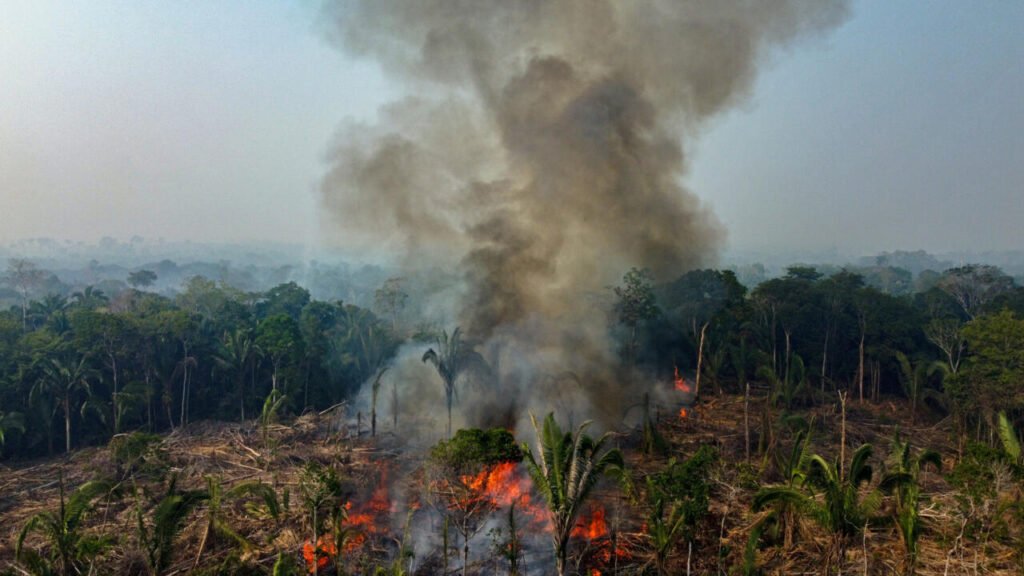Rio de Janeiro (AFP) – Nearly 3,000 forest fires were recorded in the Brazilian Amazon this month, the most in February since records began in 1999, and experts say climate change is increasingly likely to be the cause.
Publication of: change:
2 minutes
Brazil’s INPE Space Research Institute announced Wednesday that its satellites have detected 2,940 fires so far this month. This is a 67% increase over the record high of 1,761 cases set in February 2007, and four times the number for the same month last year.
“Climatic factors certainly play a fundamental role in this anomaly,” Anne Alencar, scientific director of the IPAM Amazonia Institute, told AFP.
The northern part of the rainforest, particularly the state of Roraima, home to the Yanomami Indigenous Reserve, was hardest hit.
“We’ve seen the Earth break temperature records, with each year experiencing its hottest years, and this has a synergistic effect with climate phenomena such as drought,” Alencar said.
A drought devastated the Brazilian Amazon between June and November last year, causing massive fires, reducing or eliminating key water resources, wreaking havoc on wildlife and affecting millions of people. Ta.
A World Weather Attribution (WWA) study last month said climate change was the main cause of “extraordinary drought” in the world’s largest rainforest.
WWA is a scientific project that aims to quantify how climate change will affect the intensity and likelihood of specific extreme weather events.
Alencar said this environmental “stress” “creates all the conditions necessary for each fire to become a large fire,” and that some of the fires are caused by deforestation for agriculture. He added that this could be the result of.
Deforestation cut in half
Deforestation in Brazil’s Amazon fell by half last year as President Luiz Inacio Lula da Silva’s government strengthened its environmental police, according to figures released last month.
Satellite monitoring detected that 5,152 square kilometers (about 2,000 square miles) of forest were destroyed in Brazil’s rainforest region last year, a 50 percent decrease from 2022.
This still means that Brazil has lost 29 times the size of Washington DC in its share of the world’s largest rainforest, where carbon-sucking trees play a key role in curbing climate change.
After defeating far-right incumbent Jair Bolsonaro in a divisive 2022 election, veteran left-winger Lula returned to the presidency on January 1, 2023, announcing that “Brazil is back” as a partner in the fight against climate change. ” he swore.
He also vowed to end illegal deforestation in Brazil by 2030.
Agribusiness ally Bolsonaro (2019-2022) drew international criticism for increasing average annual deforestation in the Brazilian Amazon by 75% compared to the previous decade.
© 2024 AFP

